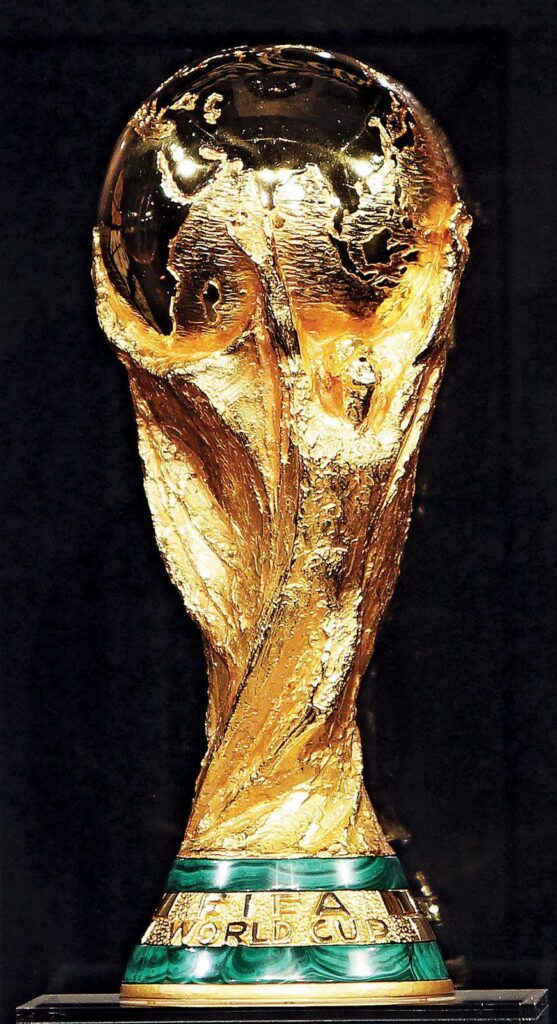As the world eagerly anticipates the next chapter in the storied saga of the FIFA World cup, the enduring legacy of this prestigious tournament remains a vital narrative in the evolution of football. Since its inception in 1930, the World Cup has not only crowned champions but has also influenced cultural identities, economic landscapes, and international relations. Each four-year cycle has woven triumphs and tragedies into the fabric of football history,pitting nations against one another in a display of athletic prowess and national pride. From the iconic moments that have captivated millions to the controversies that have sparked debate, the World Cup’s impact transcends the pitch, leaving an indelible mark on the lives of fans and players alike. This article delves into the multifaceted legacy of the FIFA World Cup, exploring how it has shaped football’s history and continues to redefine the sport on a global scale.
Table of Contents
- The Evolution of the FIFA World Cup and Its Impact on global Football Culture
- Historical Milestones: Key Moments That Defined the Tournament
- Economic and Social Influences of the World Cup on Host Nations
- Future Prospects: Innovations and Changes for the Next Generation of World Cups
- The Way Forward
the evolution of the FIFA World Cup and Its Impact on Global Football Culture
The FIFA World Cup, which began in 1930, has transformed over the decades into a monumental event that transcends the sport itself. From its modest beginnings in Uruguay to the billion-dollar spectacle it has become, the tournament has fostered a sense of unity and rivalry among nations. Each edition has introduced innovations that have shaped the game globally, including enhanced broadcasting techniques, the incorporation of technology in officiating, and the growing role of social media in engaging fans. As nations compete for glory every four years, they contribute to a shared narrative that binds countries through mutual passion and pride.
Moreover, the tournament has profoundly influenced local football cultures and driven the sport’s popularity across the globe. Key developments include:
- Grassroots Engagement: Increased interest in football leads to community initiatives and youth programs.
- Global Superstars: Players like Pelé, Diego Maradona, and Lionel Messi become not just sports icons but also cultural ambassadors.
- Economic Boost: Host nations experience notable growth in tourism and infrastructure development.
To illustrate the tournament’s cultural impact, the table below highlights some pivotal World Cup milestones and their importance:
| Year | Milestone | Impact |
|---|---|---|
| 1930 | First World cup | Ignited international competition |
1966
Historical milestones: key Moments That Defined the TournamentThe FIFA World Cup has been marked by a series of transformative moments that not only defined the tournament but also reshaped the global landscape of football. From its inception in 1930, with Uruguay lifting the first trophy, to the iconic 1970 tournament in Brazil, where Pelé dazzled the world with his unparalleled skill, these events resonate beyond the pitch. Other significant milestones include the shift to a modernized format in 1998, which expanded the competition to 32 teams, allowing nations from every corner of the globe to participate and demonstrate their football prowess. This change paved the way for an explosion of football culture in regions previously underrepresented on the world stage. Moreover, the impact of memorable matches and rivalries cannot be overstated. The infamous ‘Battle of Santiago’ in 1962, where Chile faced Italy, became notorious for its violence, reflecting the fervor of national pride that accompanies the tournament’s biggest stages.Another critical moment was the 1982 World Cup, where Italy’s unexpected triumph galvanized a football-loving nation, showcasing the unpredictable nature of the tournament. Together, these historical milestones illustrate how the World Cup has evolved, influencing not just the game but also its fans, countries, and cultures worldwide. Economic and Social Influences of the World Cup on Host NationsThe FIFA World Cup stands as a transformative force for host nations, considerably impacting both their economies and social structures. Economic stimulation is frequently enough at the forefront, as the massive influx of visitors sparks growth in various sectors such as hospitality, transportation, and retail. host cities typically undergo revitalization projects, including the construction of new stadiums and enhancement of infrastructure. this surge in investment can create numerous job opportunities, further benefiting local communities. According to recent studies, host nations like South Africa in 2010 and Brazil in 2014 saw temporary boosts in GDP due to tourism and infrastructural investments.However, the long-term financial viability of these projects often raises questions about sustainability post-event. Beyond the immediate economic benefits, the World Cup produces notable social influences that shape national identities and promote unity. The event acts as a catalyst for community engagement, with local cultures showcased on an international stage.Major festivals and fan zones become focal points for citizen participation, fostering a sense of pride among residents. Additionally, the exposure from hosting the World Cup can cultivate a more profound interest in football among the youth, leading to increased investment in grassroots programs and sports facilities. Though, these social benefits come with challenges, such as displacement of communities and increased cost of living, which necessitate responsible planning and openness in addressing potential adverse consequences. Future Prospects: Innovations and Changes for the Next Generation of World CupsThe landscape of international football is poised for monumental change as we edge closer to the next generation of World Cups. Technological advancements are set to redefine the traditional experiences of players and fans alike. Innovations such as augmented reality (AR) experiences and virtual reality (VR) training tools are becoming increasingly accessible, allowing spectators to immerse themselves in the game like never before. Moreover, the incorporation of artificial intelligence (AI) for analytics and strategy development will elevate coaching techniques, providing teams with data-driven insights to optimize performance on the field. sustainability is also at the forefront of organizational strategies for future tournaments. Host nations are being urged to adopt green practices, from stadium construction to waste management. The upcoming World Cups will likely feature solar-powered stadiums and initiatives aimed at reducing carbon footprints. Furthermore, fan engagement will be transformed through enhanced digital platforms that promote inclusivity, allowing global supporters to partake in events virtually. A blend of technology, sustainability, and fan interaction will shape an exciting new chapter in the World Cup legacy. the Way forwardas we reflect on the enduring legacy of the FIFA World Cup, it becomes evident that this monumental tournament extends far beyond the excitement of the matches themselves. Each edition has woven itself into the fabric of football history, influencing generations of players, fans, and nations alike.The World Cup has not only highlighted the sport’s greatest talents but has also served as a platform for cultural exchange and international unity. With the passage of time, the tournament’s impact continues to resonate, shaping the evolution of football and inspiring future stars on every continent. From the grassroots level to professional leagues, the spirit of the World Cup fuels aspirations, fostering a global community united by a shared love of the game. As we look ahead to future tournaments, we carry forward the lessons learned, the memories made, and the unbreakable bonds forged through this prestigious competition.indeed, the legacy of the FIFA World Cup remains a pivotal chapter in the saga of football, one that will undoubtedly inspire and influence the sport for years to come. |





